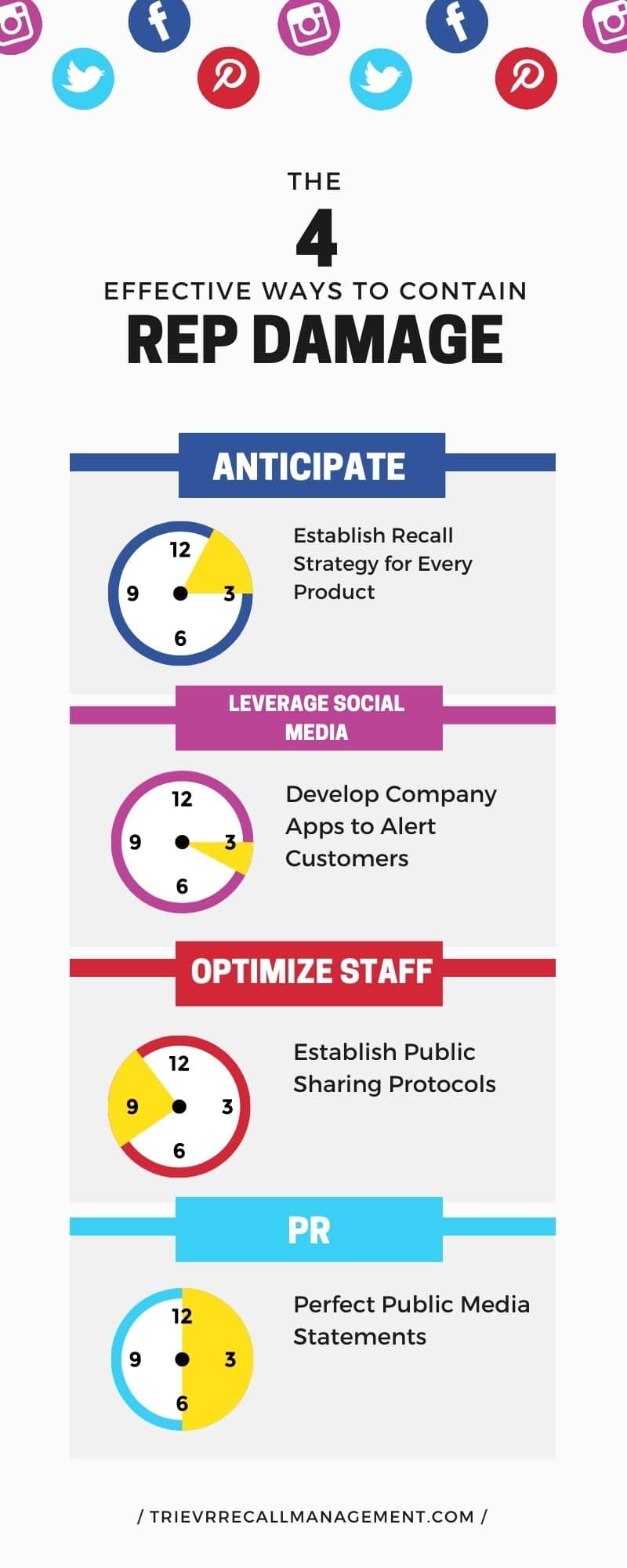Product recalls are necessary reactions in the case of an emergency such as a public health concern or the risks of facing legal charges from consumers. It is vital for businesses to set up a robust recall strategy before disaster strikes to ensure that every step is quick and seamless while minimizing damage to the brand’s reputation. A lingering issue or complaint can cost companies millions of dollars or run them out of business – time is of the essence.
The recent COVID lockdown has led to increased health concerns. While production might be slowing down in recent months, a recovering market is expected to result in a surge of product recalls. This chain reaction is most likely to affect suppliers in Pharma, food, and medical device industries. The COVID outbreak remains a pressing international issue, which carries novel health considerations for the FDA and other regulating authorities.
Through proactive measures, companies can minimize damage to their reputation in response to the imminent deluge of recalls. The key lies in customer assurance and digitization.
1. Anticipating the Issue
Companies should establish a systematic product recall strategy before the earliest signs of trouble. This will enable decision-makers to plan the tasks designated to each staff member in achieving the swiftest response. It might be advisable for companies to develop a recall strategy for every product in their inventory. The assumption will drive brands toward establishing proper recall framework and PR outreach in maintaining customer responses via the most effective channels of communication – regardless of the product.
2. Leveraging on Social Media
News travels fast across social media. Companies have the opportunity to reach out to a mass audience through their brand channels or online news outlets in record time. Social media outreach may be enhanced by company apps with notification features that alert users on the latest news. This ensures that consumers are informed of the situation at any place and at any time. By reaching consumers first on an issue, companies will be able to avoid backlash from the public or press.
3. Optimizing Staff Protocol
A major part of a product recall strategy involves enforcing what employees are allowed to publically share or publish about a crisis. Decision-makers must ensure that these rules are legally binding to so what happens in the business stays within the business – unless the green light has been given, and even so, information should be disseminated at a controlled level. By doing so, affected companies can reduce the risks of premature announcements (via employee connections, etc) that will jeopardize response procedures.
Additionally, authorized staff should be always well-informed of recall report channels, and equipped with the right tools and skills to execute and monitor a product recall process.
4. Perfecting Public Media Statements
Press release statements and official site announcements are necessary in product recalls. These forthcoming messages provide a set of crucial information, which usually includes: a public apology, details on the affected product, potential health risks involved, and the guided steps to receiving a full refund or replacement.
Revenue should no longer be a priority in the case of a product recall. Companies should aim to preserve the long-term loyalty of their customers by maintaining a transparent, apologetic, and informative stance. This is exemplified byPharmaTech LLC in 2017, when a batch of their Diocto Syrup product was voluntarily recalled due to suspected bacterial contamination. In the press statement, consumers were clearly informed of the problem, while being directed to FDA’s MedWatch Adverse Event Reporting program where they may follow up in cases of adverse quality or side effects.
These urgent statements are usually published on the landing page of a company’s official website and circulated by the press. Companies should ensure that the content is brief and concise, there should be no room for (further) error or misunderstanding. When in doubt, recalling companies may consult the FDA for support in their press release preparation and publicity arrangements. This can be achieved by contacting the local District Recall Coordinator.
Seeking an Automated Solution
Product recall procedures can be complex, considering the amount of information and people involved in the process – not to forget its time-sensitive components. As such, a manual method might prove ineffective or might compromise the quality of your response. This is where an automated solution such as Trievr Recall Management can come in handy.
Trievr Recall Management is an on-demand recall management platform that keeps all stakeholders in the loop during a critical response. Our highly intuitive and automated software scales up according to the needs of your business to limit the damage of a product recall.
Schedule a demo or speak with one of our representatives to learn how we can help avoid the usual recall pitfalls and save you valuable time during a crisis.
